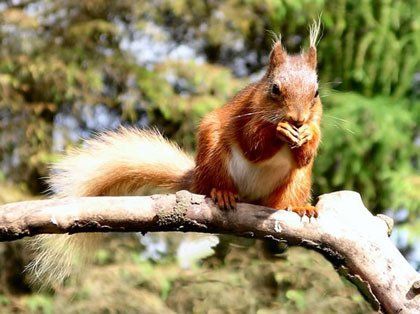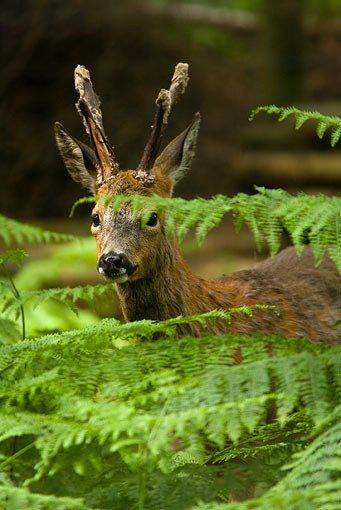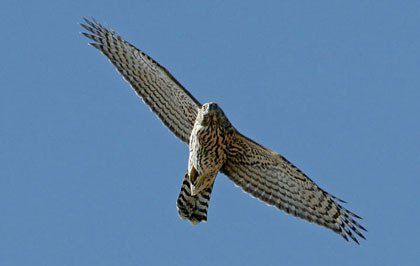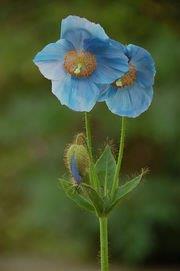WILD WOODS LIFE
Wildness is the spirit of our rolling Border Hills, and Wildness permits wild life.
If you are quiet, patient, slow moving and observant our wild woods and hill offer some exciting sightings, and lots of interest.
Roe deer, hare, and rabbits can be seen. Small invertebrates thrive too, supporting small mammals (shrews, voles, moles, mice), and brown long-eared and pipistrelle bats. These in turn support larger predators including badger, fox, weasel, stoat, and ferret.
We are pleased with increase in otter in the area, and the knowledgeable may recognise spraints (droppings) near our burn.
We are especially pleased with the recent return of the native Red Squirrel to our woods, as a result of a 5 year programme of control of the north american Grey squirrels (though you may see these as well).
Birdlife is also very healthy, from a rich small bird population (goldfinch, yellowhammer, greenfinch, blue tit, coal tit, chaffinch, bullfinch, chaffinch, skylark, treecreeper) through larger birds such as woodpecker, skylark, jays and occasional snipe and cuckoo to raptors such as Buzzard, Sparrow hawk, Goshawk, Hen Harrier, and kestrel. You will hear their cries as they hunt over the heather. After dark you will hear owl.
Happy wild-life viewing, but please remember:
'Take only pictures and Leave only footprints'
Conservation & Sustainability
Our northern slopes of Ruberslaw have remained “unimproved” in agricultural terms, making them rather special for the semi-naturally graded vegetation. Also special is the excellent Hawthorn-dominated natural scrub regeneration. Whin or gorse is widespread, and may well also link back to medieval usage in field delineation, thatching, and as a winter fodder when crushed. We have a policy to preserve this vegetation cover as an asset.
Shaw Wood, just behind the Walled Garden, has had continuity of cover as a hardwood forest remnant back to Medieval times at least, but many woods are newer plantations. The denser parts provide good cover for wildlife and you are asked to keep out of these parts.
Conservation and sustainability inform many managment decisions:
- Heating the farmhouse with a biomass boiler
- Using home grown wood-fuel
- Spring water off the slopes of Ruberslaw
- Willow bed filtration of the treated sewage outflow
- Composting toilets for the hill pitches and a 3 bay composting system for garden and stables waste
- Maximising use of thermostatic heating zone controls, energy efficiant bulbs, non-toxic cleaning materials etc
- Recycling of household and campsite waste
- Future projects to improve conservation and sustainability include restoration of the mill pond, and solar energy.
Will you be lucky?
Watch out for the fabulous Himalayan Blue Poppy - the species Mecanopsis Baileyii was first identified by Col. F.M. Bailey, a forebear of the Bailey family who own the campsite, in the latter days of the British Raj in India.
Tel: 01450 870092
Email:
info@ruberslaw.co.uk
Spital Tower, Denholm, Hawick TD9 8TB
Ruberslaw Wild Woods Camping
Registered in Scotland SC400067
Registration number 405 3715 21
©2021 Ruberslaw Wild Woods Camping













